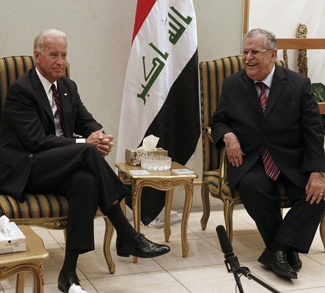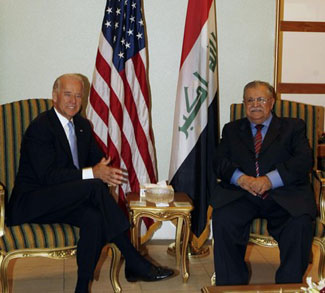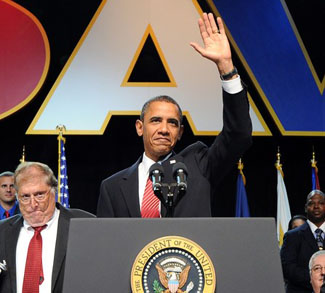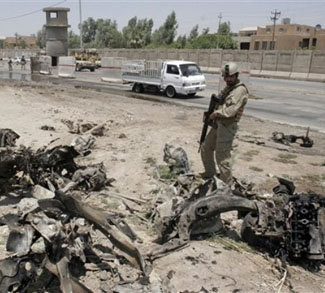Just hours before an official end to US combat operations in Iraq, President Nouri Maliki used a major speech to declare that Iraq is now independent and its security forces are up to the task of keeping order.
Although violence is down from peak levels in 2007, it would be quixotic to assume that the political situation in Iraq has stabilized. Political parties remain unable to come together and form a government, perpetuating a power vacuum at the center of Iraqi politics that is fuelling a new wave of violence. In just the first three weeks of August, over 85 members of the security forces have been killed in this uptick of attacks. Most disturbing is the fact that the logjam in Iraqi politics is the result of longstanding sectarian tensions– tensions that still don’t seem to be receding. It’s quite possible that for Maliki, the political allure of making such a speech trumped the ground-level reality that Iraq is still very much a work in progress. Maliki is, after all, doing everything that he can to strengthen his claim to another term as Prime Minister.
The ‘end to combat operations’ is being treated by many analysts and commentators as a milestone; a kind of symbolic end to the war in Iraq. It follows that several of them are looking back on the war’s original rationale and wondering whether it was worth it. The BBC’s John Simpson, a veteran Iraq correspondent, didn’t mince words in his assessment:
“As the British learned in the Boer War, and Russia learned by invading Afghanistan, great military powers run big risks by putting their strength to the test against weak-seeming opponents. America seems to have shrunk as a direct result of its imperial adventure in Iraq.It will have to work very hard to persuade the rest of the world that it is strong again.”
When Richard Armitage, the Under Secretary of State at the time as well as a leading neocon, was asked about whether the invasion was worth it, he responded that it still stands as a sound policy. However he also makes it clear that the Bush administration made several mistakes in the execution. Interestingly, when asked why the mistakes were made, he said:
“I’ve thought about it a lot – the initial impression from the Department of Defense was that they wanted to go in as light as possible – we had campaigned on light, mobile, hostile agile forces and I think that [US defence secretary] Mr [Donald] Rumsfeld and his colleagues were intent on proving that – and by the way, Secretary [of State Colin] Powell as has been reported was able to double the size of the invasion force.”
It seems that certain elements of the Bush administration were keen to justify huge amounts of defense spending on the Future Combat Systems. Thus, the first five years of strategic breakdown in Iraq were caused by the Bush administration’s single-minded devotion to fighting a war that it wanted to and not the one which it had to.
Over at the Washington Post, Eugene Robinson takes the view that though the United States did not win in Iraq, it didn’t lose either:
“[The Bush administration] saw the opportunity not just to depose a heinous despot but to reshape the Middle East by implanting a pro-Western democracy at its heart. They succeeded at the former but not the latter.”
“One thing that has not changed about wars is that they always have unintended consequences. In the case of Iraq, the biggest unforeseen development is that Iran has gained tremendous power and influence in the region — and is much closer to becoming a nuclear power. Show of hands: Who believes the Middle East is a safer place now than before the U.S. invasion?”
One might argue that Iran’s ascendance in the region is far from an ‘unforeseen development’ since many experts at the time were pointing out that regime change in Iraq, as well as Afghanistan, would remove two of Iran’s primary enemies. But, when top figures in the administration were caught unaware that a Sunni/Shiite split existed in Iraqi society, it would be too much to ask that they ponder the wider impact that regime change would have on the region.




